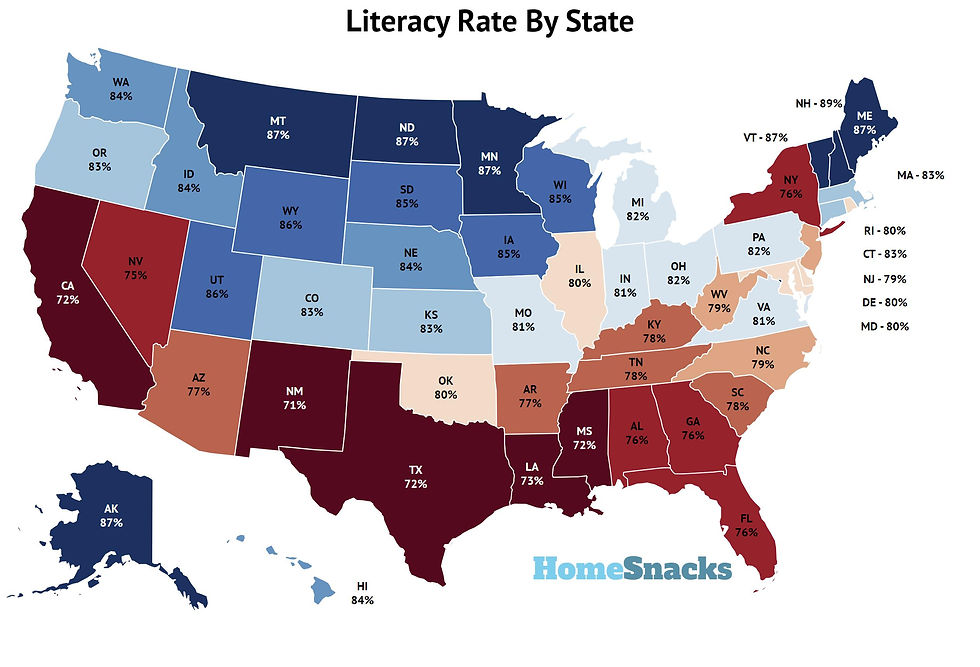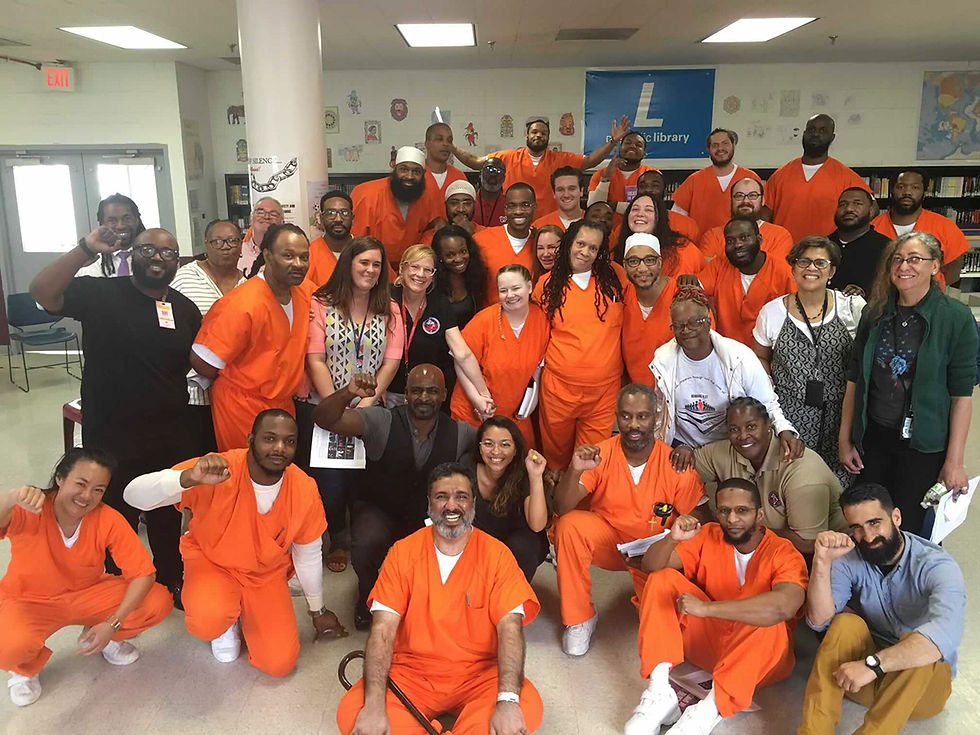Literacy: Why You Should Care
- Brenna Calhoun

- Sep 5
- 4 min read
As a publishing company, literacy is integral to all we do at CDFCO. This literacy month, it's important to understand the ways in which we rely on literacy not only in our daily lives, but as a healthy, functioning society.
Literacy, as defined by Britannica, is the "capacity to communicate using inscribed, printed, or electronic signs or symbols for representing language." (Miles Foley). Due to the multi-contextual importance of literacy, it has long been a subject of note for scholars and activists. Going back in our history, the new wave of accessibility in developing literacy is a relatively recent accomplishment. In Europe, prior to the 15th century when Johannes Gutenberg invented the printing press, the right to read was reserved for nobility. At a time when church and state were inextricably bound, the ability to read the Bible was a source of status and importance.

This concept remained even after the printing press was invented and throughout the renaissance with the widespread resurgence of classical Greek academia. When the United States was settled, initially just the modest Virginian colony in the South and Massachusetts in the North, the varied groups which colonized these areas brought their values with them. In Virginia, the settlers, for the most part, arrived alone as individuals. Because of the wealth of cheap land, young English citizens were drawn across the Atlantic by the promise of power and monetary gains. These colonizers practiced an early form of capitalism in which there was little market regulation, and this translated into the values we have in the South today.
In Massachusetts, on the other hand, settlers arrived as a community. They were less independent as a whole, and there was a greater focus on religion and morality. Because of the importance placed in Christianity at the time, those in Massachusetts also placed an emphasis on literacy, as being able to read the Bible was one of the keys to salvation. Because of this, Northern education systems arrived early on in rudimentary forms. As the nation developed, a trend of decreasing literacy the farther South you went became clear.

As it stands, our country as a whole stares in the face of a fast-approaching literacy crisis. In 2023, the National Assessment of Education Progress found that only 43% of fourth graders in the United States were at or above grade level reading ability. For students in minority groups, the results are even more dire. 17% of Black students, 21% of Latinx students, 11% of students with disabilities, and only 10% of multilingual fourth graders were at or above proficient literacy levels (Socol). Our country's long-standing history with denying marginalized communities the right to read persists even today, though every community is currently affected by these poor numbers.
In Texas, the facts seem particularly grim. We land in 46th place for adult literacy as compared to every other state, we rank 49th place for our population of adults with a high school education, and our funding per student is over $3,000 below that of the national average (Literacy Texas). Literacy is a dire skill for a number of reasons including successfully finding employment, avoiding poverty, and being motivated and well-informed in regard to voting. According to literacytexas.org, an increase in literacy by only 1% would boost both labor productivity and national GDP and if "all adults could reach the equivalent of a sixth-grade reading level, up to $2.2 trillion additional income could be generated annually for the United States." (Literacy Texas). This is not merely a social issue, but an economic one as well. Every year that we remain illiterate, we lose money on a much broader scale than most people think.
Increasing literacy would not only be profitable, but it would create a safer, more just society, too. It's estimated that 75% of individuals currently imprisoned are below what is considered proficient adult literacy levels, and those that participate in education programs are 43% less likely to become reoffenders, stuck within the system due to poverty and inadequate education (Literacy Texas).

Education and literacy can open incredible doors for our country and us as individuals. If we don't quickly make a change in our education systems here in Texas, it's been predicted by the Texas Association of Workforce Boards that, by 2040, we will have an insufficiently educated workforce, a decreased tax base to fund government services, and a declining ability to maintain infrastructure. It has been similarly predicted by the Texas Higher Education Coordinating Board that, by 2040, technology with replace roughly 20% of workers with below-level literacy (Literacy Texas).
Despite the facts, we are not too far gone. Literacy can be amended in a number of ways, and it starts with educating ourselves on the issue, recognizing its importance, and then making the effort to combat the challenges ahead. As individuals, we can advocate for better teacher training, equitable funding for our schools, local literacy centers where they're needed most, federal investment, and public awareness.
This literacy month, we encourage you to get involved with your local communities and check in with your government representatives to ask what is being done to resolve this crisis. You can also join Literacy Texas' mailing list by clicking here to stay up to date on the topic of literacy in Texas. Literacy is an ever present and changing issue with new technology and social climates, but certain truths remain. As stated by Frederick Douglass, "Once you learn to read, you will be forever free."
Sources:
Literacy Texas. “Literacy Facts.” Literacy Texas, 2025, www.literacytexas.org/why-literacy/literacy-facts/.
Miles Foley, John. “Literacy | Definition, History, & Facts.” Encyclopædia Britannica, 17 May 2010, www.britannica.com/topic/literacy.
Socol, Allison. “The Literacy Crisis in the U.S. Is Deeply Concerning—and Totally Preventable.” EdTrust, 17 Jan. 2024, edtrust.org/blog/the-literacy-crisis-in-the-u-s-is-deeply-concerning-and-totally-preventable/.



Comments